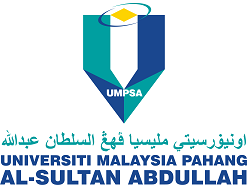THE NON-FORMAL EDUCATION OF ORANG ASLI ADOLESCENTS IN MALAYSIA: FROM COMMUNITY TO UNIVERSITY
DOI:
https://doi.org/10.15282/ijhtc.v5i1.4812Keywords:
Adolescent development, Community-based learning, Indigenous knowledge, Native peoples, Non-formal educationAbstract
Even though the world has crossed into the next decade, non-formal education through community-based learning and other traditional learning avenues remains a powerful force in human lifespan development, especially for native peoples who possess thousands of years of local knowledge. Focusing on the Orang Asli (native peoples) of Malaysia, this empirical study was carried out to map the field before a more extensive research project is executed at the Royal Belum State Park in the state of Perak, Malaysia for the next two years. Six Orang Asli adolescents (three females and three males) from two local institutions of higher learning in Perak were interviewed individually and through focus group discussion sessions regarding their engagement with non-formal education within their own communities, from when they were much younger until they became tertiary level students. This study focuses on three permutations of non-formal education as operationalised by our research questions. First, as stories about the world around the participants that were told by elders in their communities and passed on from one generation to the next. Second, as first-hand experience on indigenous knowledge that is unique to their own communities and still practised by certain community members. And third, as a complementary form of education vis-à-vis the formal process of schooling, particularly for young Orang Asli children. ‘Thick’ qualitative data presented and discussed in this study deepen our understanding of non-formal education for and by the Orang Asli in Malaysia, as examined through contemporary lenses in a new decade of human history.
Downloads
Published
Versions
- 2020-07-01 (2)
- 2020-07-01 (1)
How to Cite
Issue
Section
License
Copyright (c) 2020 Universiti Malaysia Pahang Publishing

This work is licensed under a Creative Commons Attribution-NonCommercial 4.0 International License.



